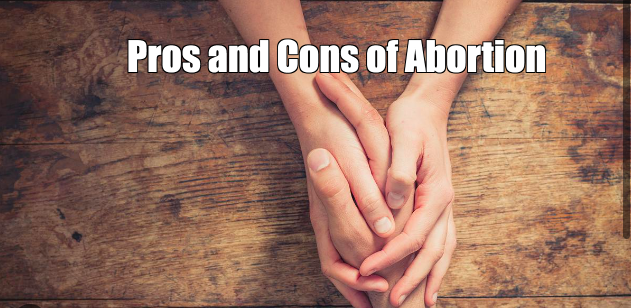
Abortion is the medical process of ending a pregnancy, allowing it not to result in the birth of a child. It can be performed through medication or a surgical procedure, depending on the pregnancy stage. Abortion raises complex ethical, moral, and legal debates, focusing on women’s rights, bodily autonomy, and the beginning of life. It’s a critical component of reproductive health services, offering individuals the choice to decide if and when they have children.
The availability and legality of abortion vary worldwide, influenced by cultural, religious, and political factors, highlighting its significance in ongoing social and health discussions.
Abortion is a highly debated and sensitive topic that impacts individuals and societies worldwide. It’s important to approach the discussion of the pros and cons of abortion with respect, understanding, and sensitivity towards differing views. This review aims to provide a comprehensive analysis of the pros and cons of abortion, considering ethical, medical, psychological, and social perspectives.
Introduction
The debate over abortion is longstanding, involving complex moral, legal, and personal dimensions. The pros and cons of abortion are deeply intertwined with beliefs about human rights, bodily autonomy, and the beginnings of life. This article seeks to explore the advantages and disadvantages of abortion, shedding light on the various aspects and implications of this contentious issue.
Pros of Abortion
1. Women’s Autonomy and Rights
One of the most significant advantages of abortion is the empowerment of women through the control over their own bodies. The ability to choose whether to carry a pregnancy to term is crucial for women’s autonomy and equality. It allows women to make decisions about their own health, future, and well-being, without external imposition.
2. Health and Safety
Abortion can save lives and protect health. For pregnancies that are the result of rape or incest, or that endanger the woman’s life or health, abortion provides a critical option. Safe, legal abortions significantly reduce the risk of long-term health complications or death that can result from unsafe procedures.
3. Socioeconomic Benefits
The ability to decide when and if to have children can have profound socioeconomic benefits. It enables individuals and couples to better plan their families, contributing to more stable and economically secure environments for raising children. This advantage also extends to societal benefits, including reduced poverty rates and better health outcomes for children.
4. Prevention of Future Hardship
Abortion can prevent the future hardship of both the child and the parents. In cases where severe fetal abnormalities are detected, abortion can spare the potential child a life of suffering. It also prevents the emotional and financial strain on families who may not be prepared for the special care required.
Cons of Abortion
1. Moral and Ethical Concerns
A primary disadvantage of abortion revolves around the moral and ethical concerns about the sanctity of life. Many believe that life begins at conception and that abortion is equivalent to taking a life. These viewpoints are often rooted in religious or philosophical beliefs about the inherent value of human life.
2. Psychological Impact
Abortion can have a lasting psychological impact on individuals. Some people experience guilt, sadness, or regret after undergoing an abortion. The psychological effects vary greatly among individuals and can be influenced by personal, cultural, and societal factors.
3. Potential Health Risks
Although legal abortion is generally safe, there are potential health risks associated with the procedure, including infection, bleeding, and complications in future pregnancies. It’s important to note that these risks are significantly lower than those associated with childbirth but are nonetheless a concern.
4. Societal and Cultural Impact
Abortion can have complex impacts on society and culture, including deepening divisions and sparking contentious debates. It can affect how societies value life and individual rights, leading to polarized communities and even affecting political landscapes.
Conclusion
The pros and cons of abortion present a complex array of advantages and disadvantages deeply rooted in personal, societal, and ethical considerations. The advantages of abortion include the empowerment of women, health and safety benefits, socioeconomic improvements, and the prevention of future hardship. Conversely, the disadvantages encompass moral and ethical concerns, psychological impacts, potential health risks, and societal and cultural impacts.
It’s crucial for the discussion on the pros and cons of abortion to continue in an informed, respectful, and empathetic manner, recognizing the diverse perspectives and experiences of individuals. Understanding the benefits and drawbacks of abortion is essential for individuals and policymakers alike, as they navigate the delicate balance between personal freedom and ethical considerations.

